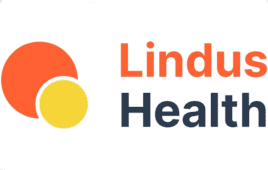 Focused on developing peripheral nerve regeneration and repair products, Axogen (Nasdaq:AXGN) announced that the Phase 3 RECON study met its primary endpoint in comparing its Avance nerve graft to conduits in digital nerve injuries.
Focused on developing peripheral nerve regeneration and repair products, Axogen (Nasdaq:AXGN) announced that the Phase 3 RECON study met its primary endpoint in comparing its Avance nerve graft to conduits in digital nerve injuries.
The primary endpoint was the return of sensory function based on static two-point discrimination. This test measures the ability to detect that two close objects touching the skin are distinct points.
“The study data confirmed that as gap lengths increased, Avance returned superior levels of sensation, and this was achieved at earlier time points than those observed for conduits,” said co-lead Investigator Dr. Jonathan Isaacs, professor and chair, division of hand surgery at Virginia Commonwealth University.
The Avance nerve graft also had a good safety profile in the study.
Axogen plans to submit a Biologics License Application (BLA) for the product in the second half of 2023.

Karen Zaderej
The company occupies a unique position in the marketplace, according to CEO Karen Zaderej. “I would say this market has really been an underserved area,” she said. “Traditionally, nerve injuries have been repaired predominately with surgical techniques and not products.”
But surgeons have had a limited toolset for peripheral nerve repair.
The results from the RECON study could have commercial advantages. Obtaining a BLA would allow the company to market Avance as a 351-Biologic product rather than an HCT/P 361-Tissue product, giving the company 12 years of data exclusivity and providing a barrier to entry for biosimilars.
“It’s a very important silver lining for us,” Zaderej said.
For one thing, the goal of potentially commercializing Avance as a biologic product is forcing the company to upgrade its quality system and physical infrastructure.
The company’s quality system is already prepared for the transition. “And we’re building a brand-new manufacturing facility,” Zaderej said. “We’re just finishing it out now.”
The new plant is based on good manufacturing practices for biologics processing.
Competitors would have to deal with a potentially steep learning curve if they don’t have prior biologics experience. “We feel like we have the right infrastructure, and it would be hard for someone else to come in in the marketplace and build that,” Zaderej said.
The fact that Axogen is now preparing for its future in biologics allows the company to “continue to focus on building the market versus sharing and fighting for share within a market,” Zaderej explained. “This is a very large and underserved market, both in pain and in traumatic injury as well as surgical areas. And we’re really focused on changing patient lives, and that’s where we want our attention to stay.”
Filed Under: Biologics, Women in Pharma and Biotech





Tell Us What You Think!
You must be logged in to post a comment.